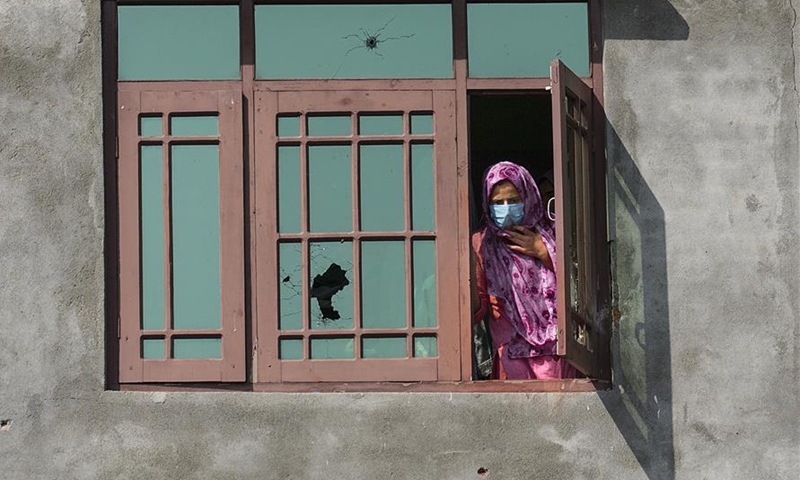UN survey shows countries lacking protection for women amid COVID-19 pandemic
Source: Xinhua Published: 2020/9/29 11:17:56

File photo:Xinhua
Tracking of government policy around the world since COVID-19 outbreake showed many women have become victims of domestic violence, unpaid caregivers and workers in jobs lacking social protection, two UN agencies said on Monday.
The COVID-19 Global Response Tracker from UN Women and the UN Development Programme (UNDP) found not enough is being done to protect women and girls from the economic and social fallout caused by the COVID-19 pandemic.
The majority of caregivers, at home and in communities, are women, serving as front-line responders, health professionals, community volunteers, transport and logistics managers, scientists and more, UN Women said in a press release.
Additionally, they are at increased risk of infection and loss of livelihood, and existing trends point to less access to sexual and reproductive health and rise in domestic violence during crisis.
The tracker found that only 42 of 206 countries and territories countries analyzed have no gender-sensitive measures in response to COVID-19.
Only 25 countries, or 12 percent, have introduced measures that cover all three areas. The measures may include helplines, shelters, or judicial responses to counter the surge in violence against women and girls during the pandemic, cash transfers directly targeted at women, the provision of childcare services or paid family and sick leave.
"It's clear that the COVID-19 pandemic is hitting women hard," said UN Women Executive Director Phumzile Mlambo-Ngcuka. "The Global Tracker supports governments in making the right policy decisions by sharing good practices and monitoring progress in care policies and measures to address violence against women."
Achim Steiner, UNDP administrator, said that "the COVID-19 crisis provides an opportunity for countries to transform existing economic models towards a renewed social contract that prioritizes social justice and gender equality. This new gender response tracker can help accelerate policy reform by guiding on gaps in national efforts and funding and highlighting best practices."
Governments have primarily focused their gender-related COVID-19 efforts on preventing and/or responding to violence against women and girls (VAWG), UNDP said in the press release.
The measures account for 71 percent of all actions identified, or 704 measures across 135 countries, the tracker shows. Out of this, 63 percent focus on strengthening essential services, such as shelters, helplines and other reporting mechanisms.
However, only 48 countries, less than a quarter of those analyzed, treated VAWG-related services as an integral part of their national and local COVID-19 response plans, with very few adequately funding the measures.
Meanwhile, the social protection, care crisis and jobs response have been largely blind to women's needs, with only 177 measures, or 10 percent of the total, across 85 countries explicitly aimed at strengthening women's economic security, and less than one-third of countries, 60, taking action to support unpaid care and strengthen care services for children, older persons or persons with disabilities, UNDP said.
Posted in: CROSS-BORDERS